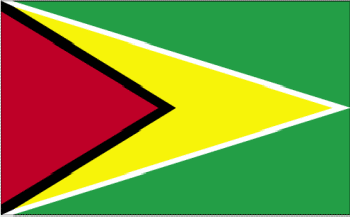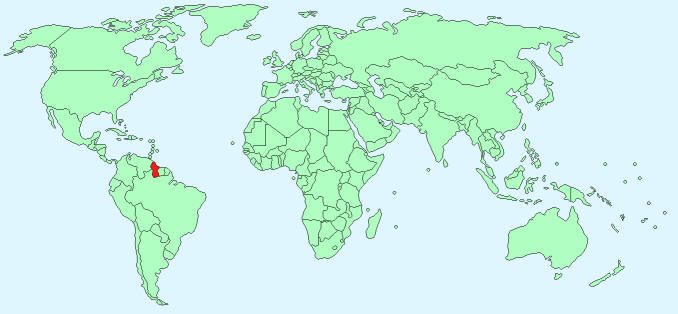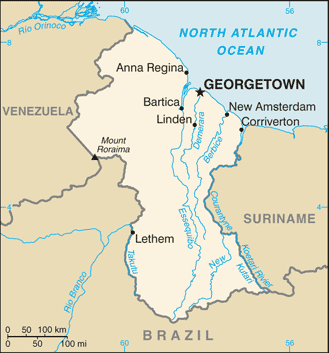Guyana


Continent – South America
Region – N/A
Size – 214,969km²
Geography – rolling highlands, low coastal plain, savanna in south
Language – Guyanese, Creole
Religion -Hindu 28.4%, Pentecostal 16.9%, Roman Catholic 8.1%, Anglican 6.9%, Seventh Day Adventist 5%, Methodist 1.7%, Jehovah Witness 1.1%, other Christian 17.7% Muslim 7.2%, other 4.3%, none 4.3%
Monetary Unit -Guyanese dollar
Natural Resources – bauxite, gold, diamonds, hardwood timber, shrimp, fish
Agriculture – sugarcane, rice, edible oils; shrimp, fish, beef, pork, poultry
Industry – bauxite, sugar, rice milling, timber, textiles, gold mining

Neighbouring Countries – Brazil, Suriname, Venezuela
Population – 735,554 (2014 estimate)
Population Growth Rate – -0.11%
Average Life Expectancy – 67.81 years
Capital City – Georgetown (235,017)
Highest Mountain – Mount Roraima (2,835m)
Longest River – Essequibo River (1010 km)
Climate -subtropical 27°C
Yearly Rainfall – 229cm (approx)
Plant Life – forests, with green-heart a major species and many varieties of trees
Animal Life – locusts, moth borers, acoushi ants, bats and other small mammals
Bird Life– 675 different species
Harvard Reference for this page:
Heather Y Wheeler. (2015). Guyana. Available: https://www.naturalhistoryonthenet.com/Facts_Figures/Country_Facts/guyana.htm. Last accessed Monday, July 18, 2016
Facts and Figures Pages
